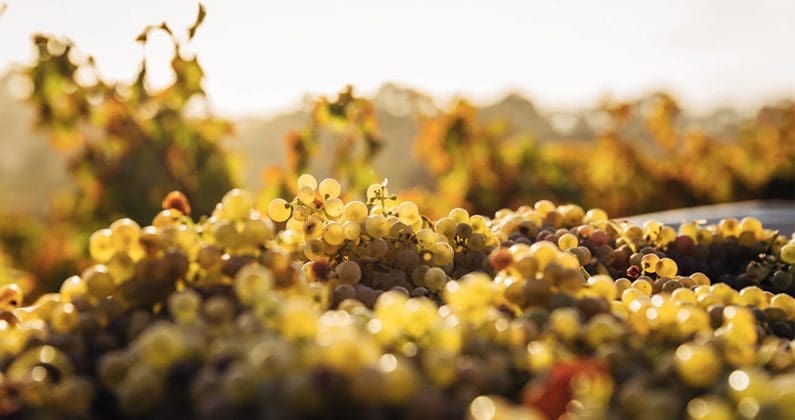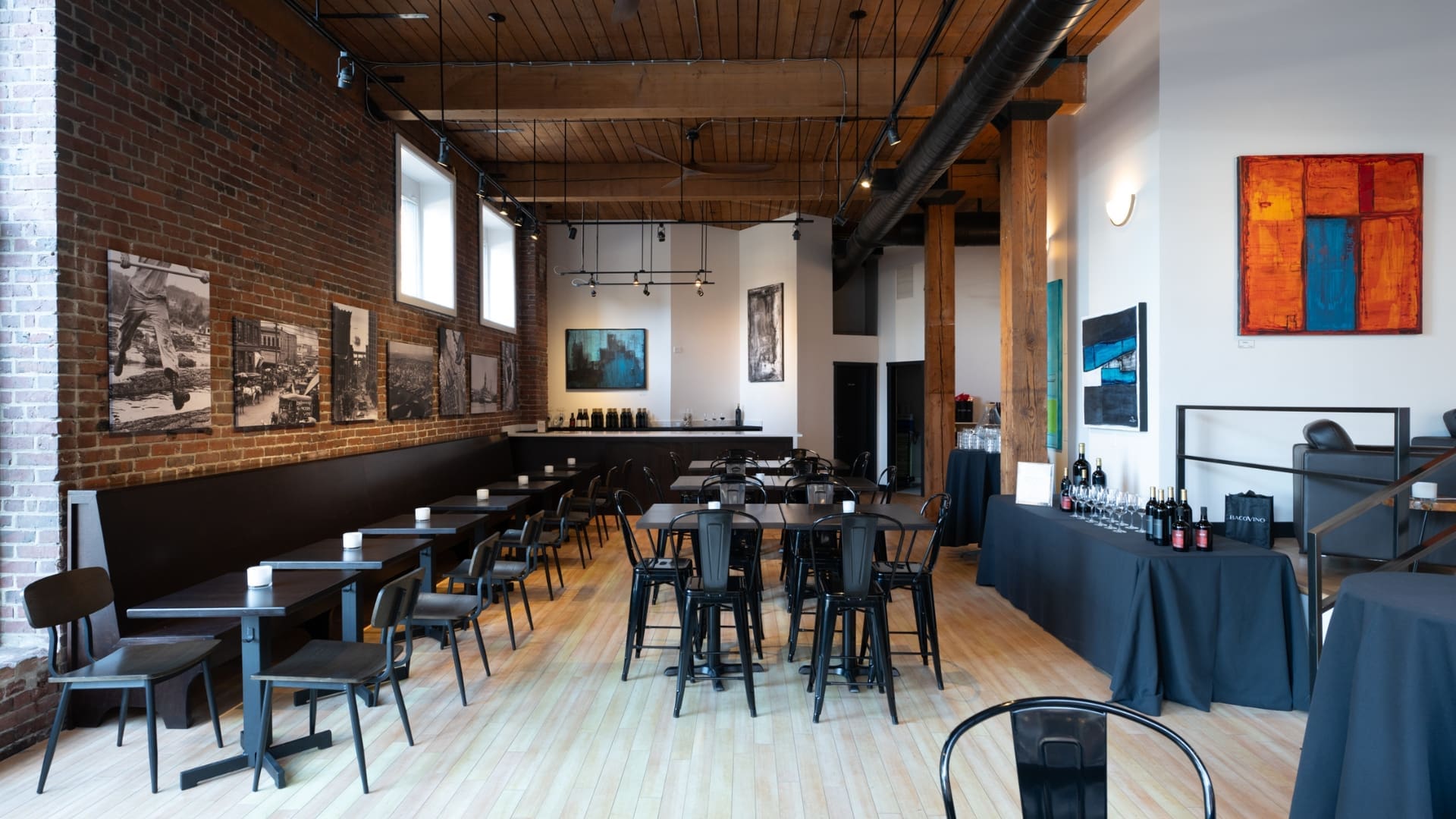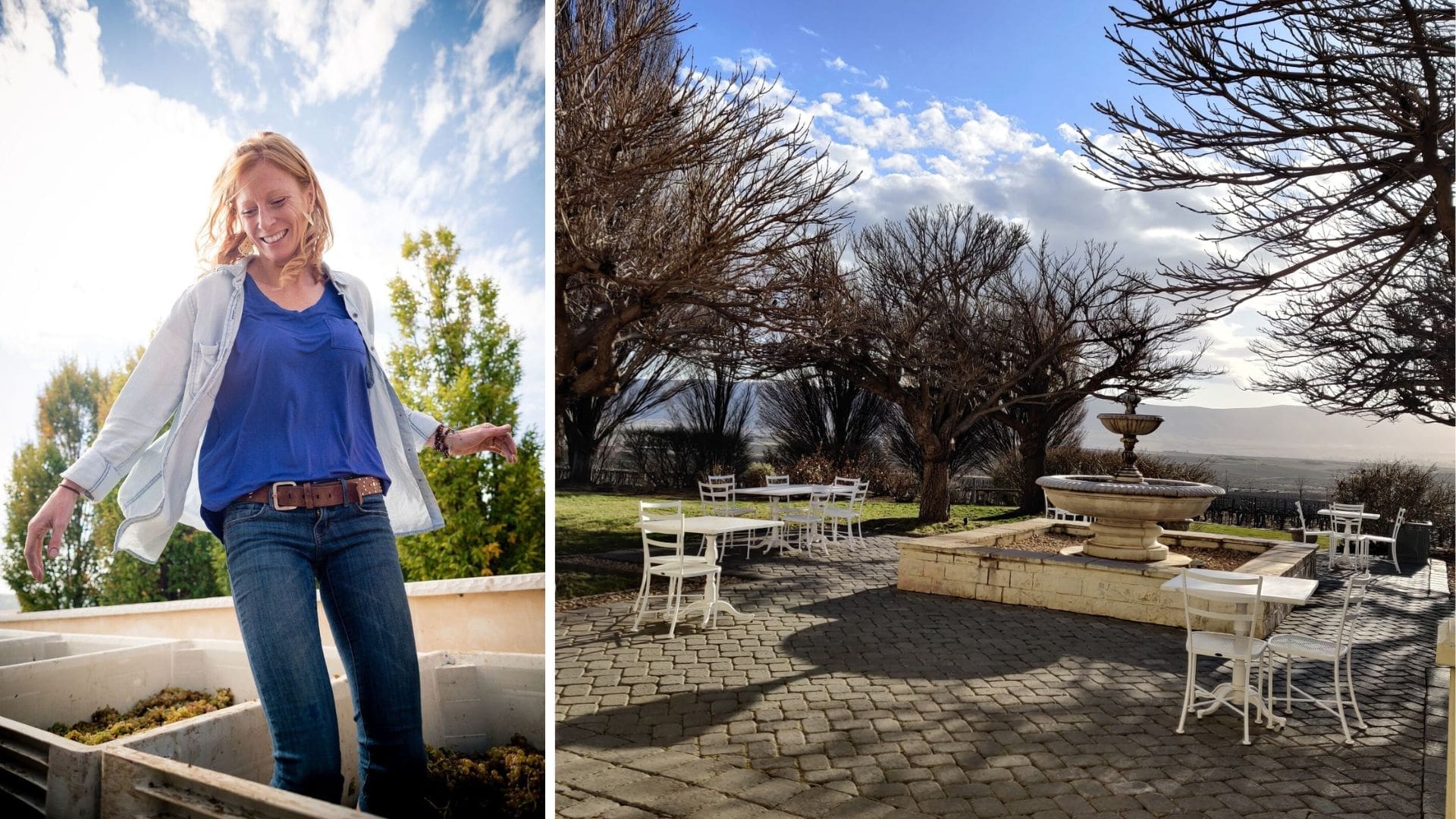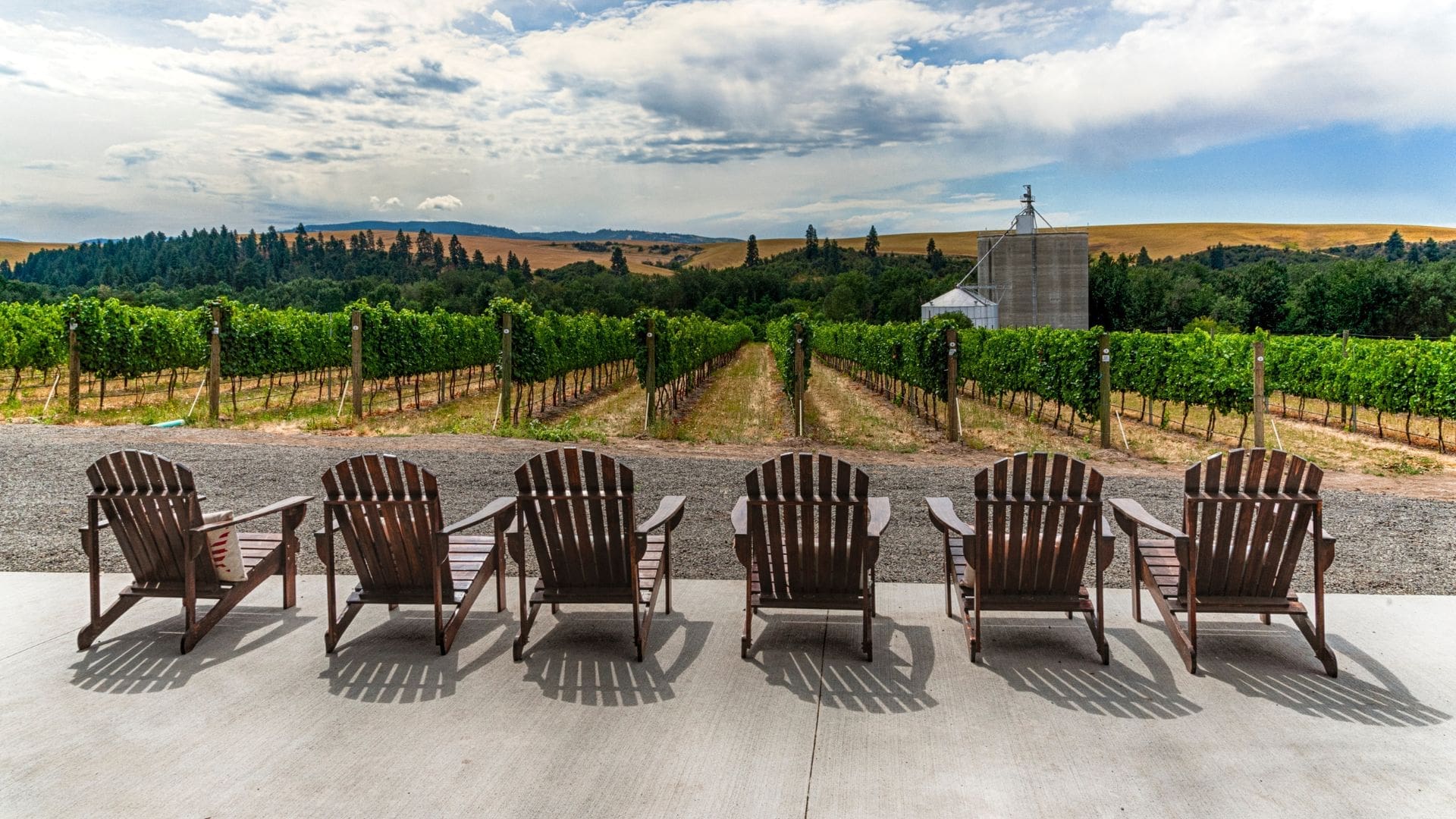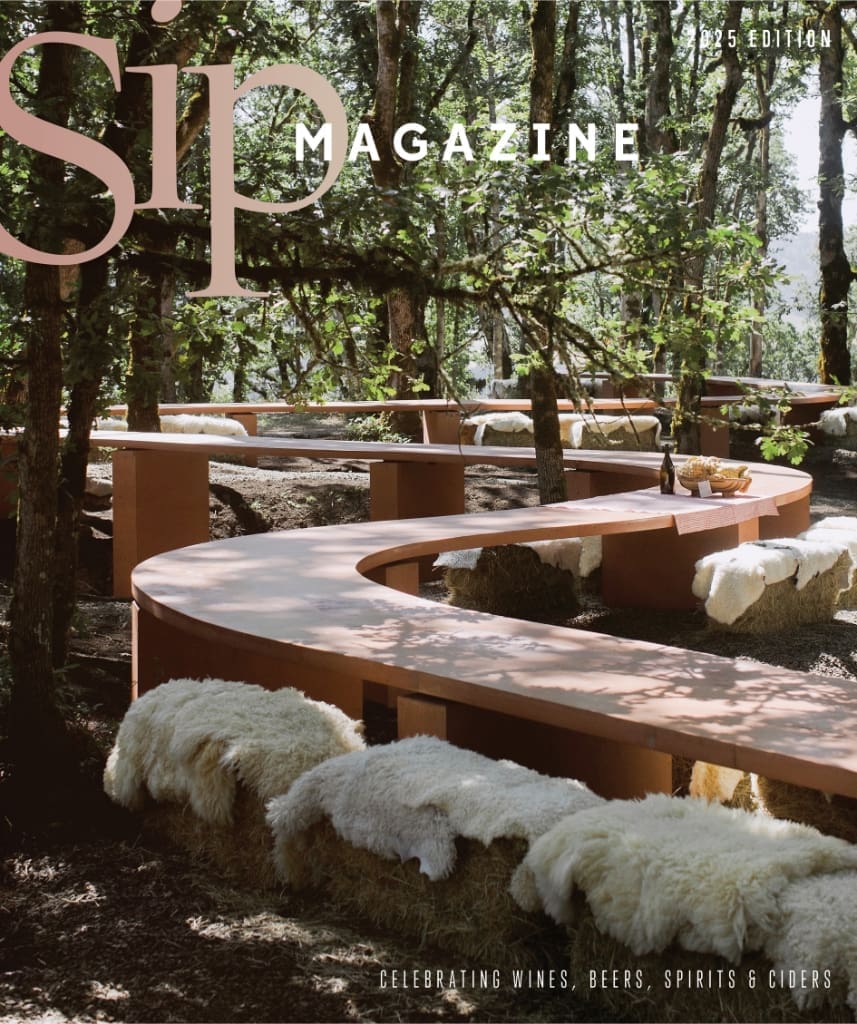Co-fermenting wine adds another dimension to the winemaking process. Rather than just blend the separately fermented varieties at the end (or prior to aging), these wineries are revisiting an old technique in which they ferment different varietals together, before they become the finished wine. The result of co-fermenting grapes rather than separately is distinct and produces new nuances to the final product. Here are five locally made renditions to get your sip on.
2017 Loess White Blend | Golden Cluster
Using grapes from the historic Wirtz Vineyard in the Willamette Valley, this white wine blends together Riesling, Gewürztraminer, Sylvaner and Savagnin Rose. Golden Cluster prides itself in its use of using some of the oldest and rarest grapes in Oregon like they do in this wine, particularly the Central European Sylvaner and Savagnin Rose, the latter from the somm-loved region of Jura, France. The final product is bone-dry, complex and aromatic — a serious smeller of a sip.
2018 Big Salt | Ovum Wines
The name hints at it but this wine attempts to encapsulate a day at the beach. Gewürztraminer, Riesling and Muscat grape are used in this blend which provide it with a fresh, dry palate on top of the abundantly aromatic nose. And if that wasn’t enough to sell you, this is one of the best-priced Oregon wines on the market at $18. Grab a bottle, get some fancy goat cheese and head out to the sea to enjoy this wine it was meant to be enjoyed.
2017 Daisy Pinot Grigio Blend | Bieler Family Wines
As a Washington (and France) focused operation of the much larger Bieler Wines portfolio, Bieler Family Wines keeps it simple with four varieties in its Daisy, an Alsatian-inspired co-ferment of Pinot Grigio, Sauvignon Blanc, Riesling and Muscat. The result is a wine that has a floral bouquet of grapefruit, lychee and fennel. The fruit flavors give the wine a refreshing mid-palate and fresh finish.
2018 Viognier/Marsanne | Stags Hollow Winery
Described as a “white wine that was made for red wine drinkers,” this wine has aromas of jasmine, lemon zest and dried apricots, with lemon curd, ginger and white pepper on the palate. Stags Hollow sources the grapes for this wine from Kiln House Vineyard, which employs sustainable practices and hand-harvests its fruit. The winery then allows the co-fermentation of these likeminded, Rhone varieties to occur naturally, without added yeast.
2016 Queen D | Day Wines
Aged for nearly a year in barrel without stirring the lees for optimal texture, this blend of Vermentino, Marsanne, Roussanne and Grenache Blanc comes from two different vineyards in Southern Oregon’s Applegate Valley. The grapes were presses altogether prior to fermentation, resulting in a full-bodied wine that is dry and incredibly drinkable, full of fleshy white stone fruit and minerality.

